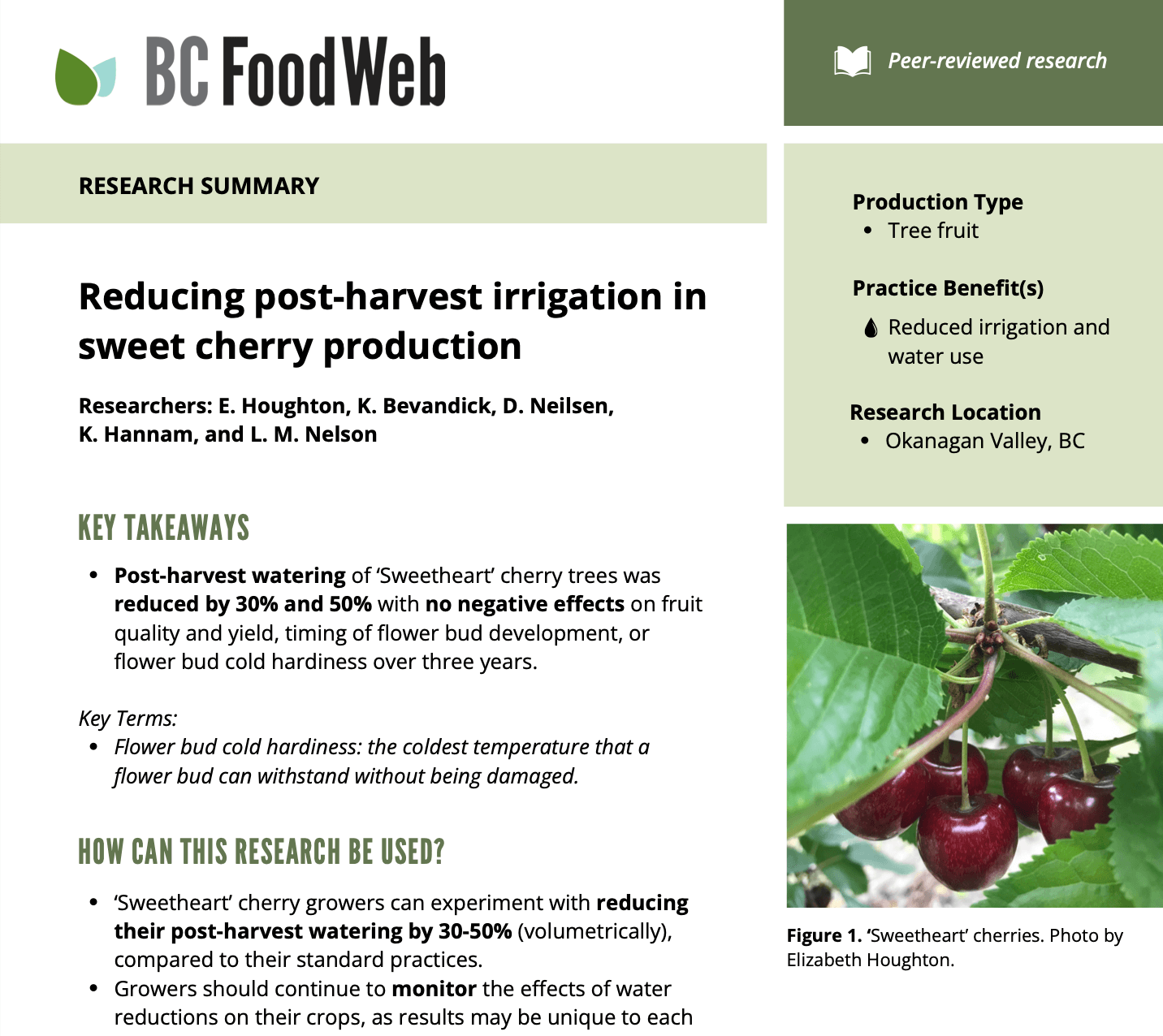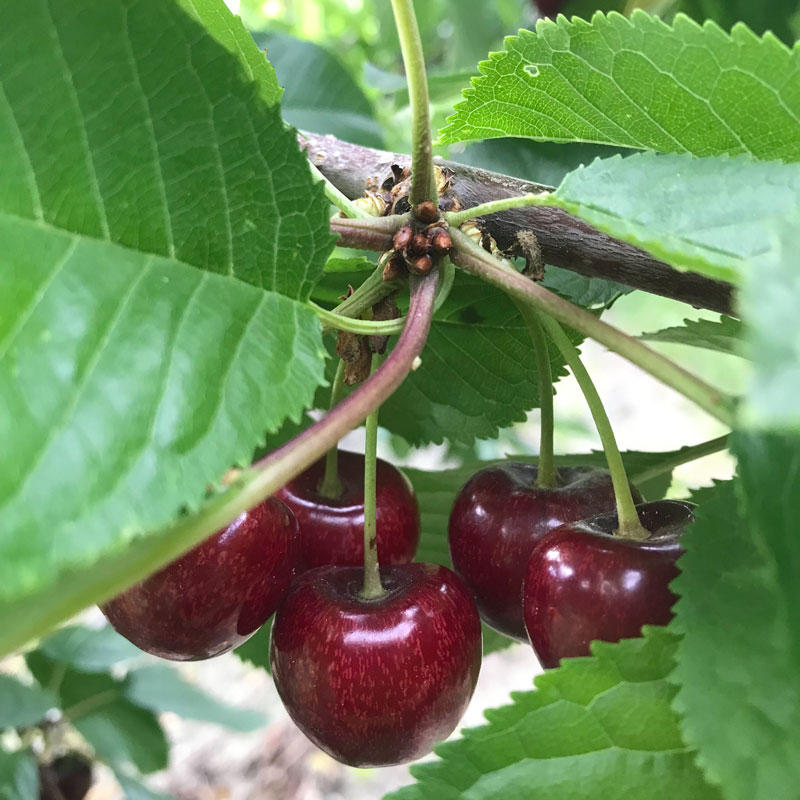Reducing post-harvest irrigation in sweet cherry production
Introduction
This study investigated whether reducing post-harvest irrigation in 'Sweetheart' cherry orchards would negatively affect fruit quality, yield, the timing of flower bud development, or flower bud cold hardiness.
About this Brief
This brief was prepared by the BC Food Web team with the help of Elizabeth Houghton, and is based on the following scientific journal article:
Houghton, E., Bevandick, K., Neilsen, D., Hannam, K., & Nelson, L. M. (2023). Effects of post-harvest deficit irrigation on sweet cherry (Prunus avium) in five Okanagan Valley, Canada, orchards: II. Phenology, cold hardiness, fruit yield, and quality. Canadian Journal of Plant Science, 103(2), 184-200. https://doi.org/10.1139/cjps-2022-0201
Key Findings
Post-harvest watering of ‘Sweetheart’ cherry trees was reduced by 30% and 50% with no negative effects on fruit quality and yield, timing of flower bud development, or flower bud cold hardiness over three years.



